
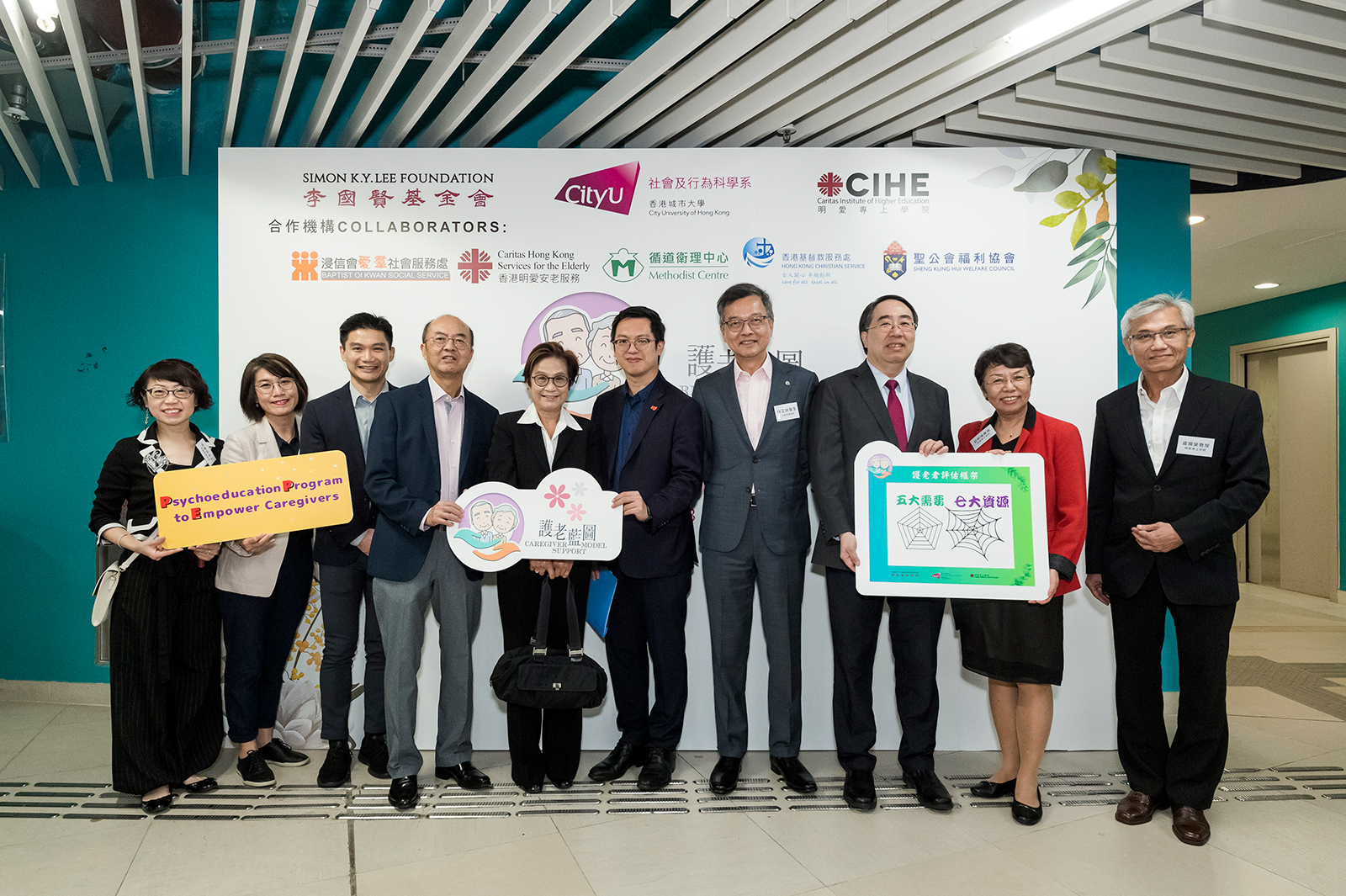
A team led by the Department of Social and Behavioural Sciences (SS) of City University of Hong Kong (CityU) has developed a scientific and comprehensive Caregiver Support Model (CSM) and has increased family caregivers’ resilience through a Psycho-education Program on Empowerment (PPE) to help them tackle the challenges they encounter on their caregiving journey.
The SS, in collaboration with the Caritas Institute of Higher Education (CIHE) and the Simon K.Y. Lee Foundation (the Foundation), co-organised a Dissemination Seminar for the Caregiver Support Project on 17 October, which was attended by over 250 interested stakeholders. The research team shared how its validated assessment tool and proven practice experience enable a broad range of social workers to adopt and implement these validated intervention models to support the family caregivers of frail older adults. Five caregivers and social workers also shared their experience with the CSM Project. Some social workers said that using spider web charts helps caregivers understand their overall situation better, while some caregivers said they learned how to affirm themselves more effectively.
The dissemination seminar was attended by Professor Lee Chun-sing, Provost and Deputy President of CityU, Dr the Honourable Lam Ching-choi, SBS, JP, Member of the Executive Council; Mr Ho Kai-ming, JP, Under Secretary for Labour and Welfare; Mr Philip Lee, Mrs Mabel Lee and Mr Edwin Lee, Board Members of the Foundation; and research team members Professor Dannii Yeung Yuen-lan, Associate Dean of the College of Liberal Arts and Social Sciences and Professor in the SS, Professor Ben Li Kin-kit, Associate Professor in the SS, Professor Lo Tit-wing, Vice-President (Research and Technology) of the CIHE, and Professor Alice Chong Ming-lin and Professor Marcus Chiu Yu-lung, Research Professors in the Felizberta Lo Padilla Tong School of Social Sciences at the CIHE.
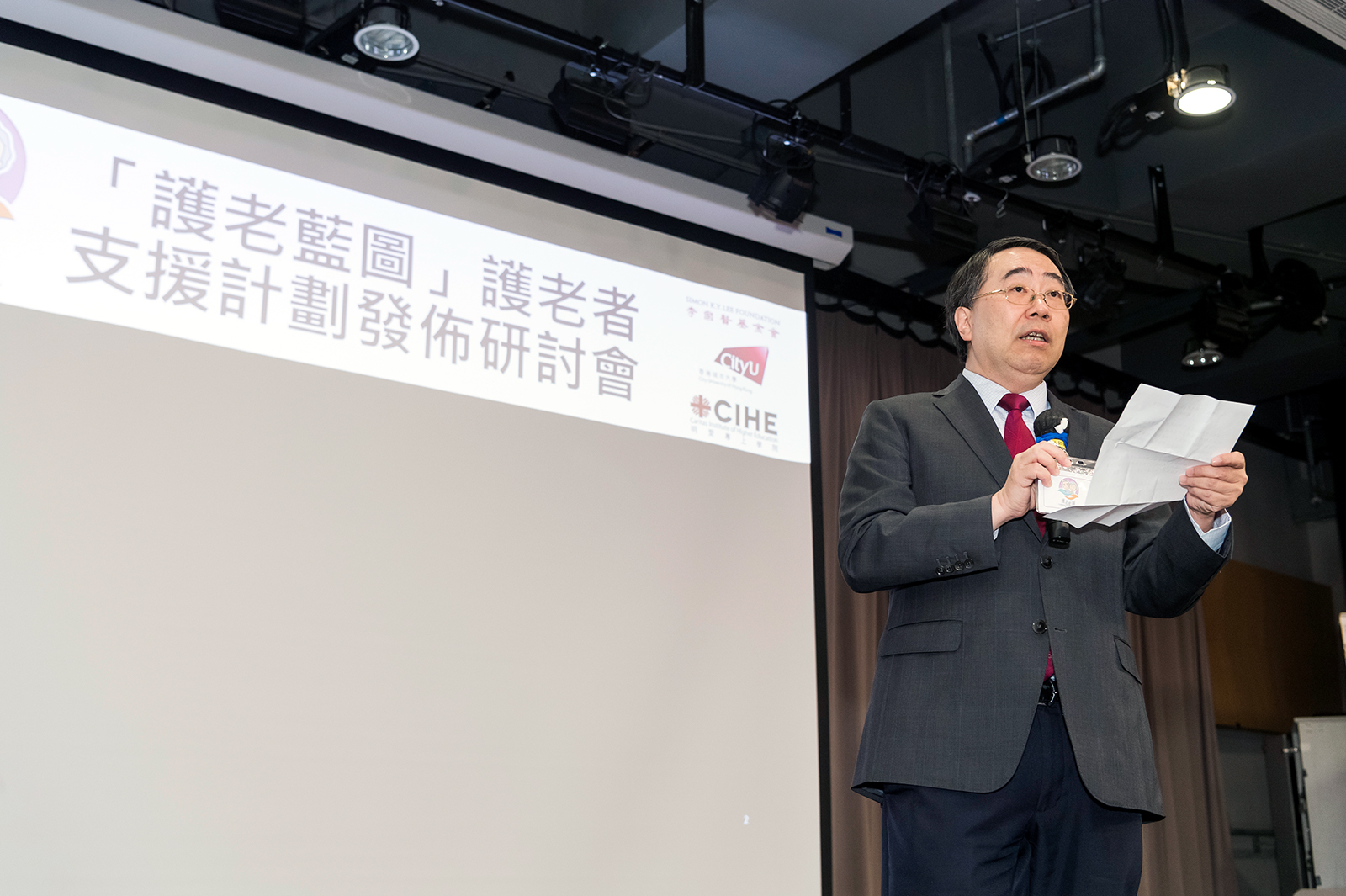
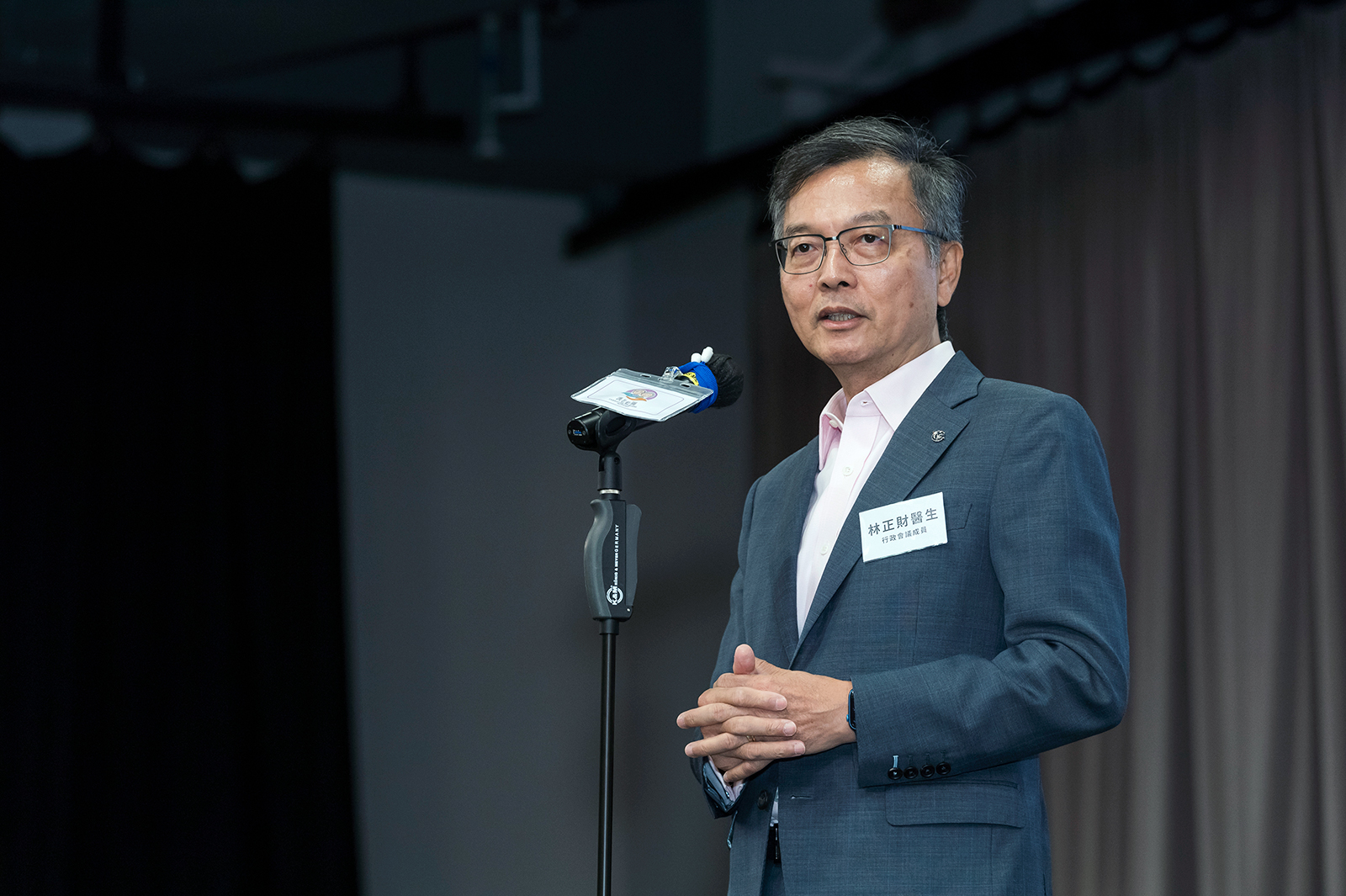
“Recent tragedies involving caregivers in society, coupled with the aging population, have shown that there is an urgent need to strengthen support services for caregivers of older adults and enhance their professional standards. This project demonstrates CityU’s determination to respond to social needs through research and community engagement,” said Professor Lee in his speech.
“The problems facing caregivers are not easy to solve. The two tools developed by the team are very important and timely, and can help drive the welfare field to think more and support caregivers using innovative and effective ways,” said Dr Lam in his speech.
“The government will launch a caregiver information gateway next month to provide official information, while the community conducts academic research from different perspectives and develops an effective caregiver support model. The government and the community should coexist and complement each other,” said Mr Ho in his speech.
“At present, there is a lack of relevant social worker training and a set of systematic guidelines in the caregiver services sector,” said Professor Li. “The CSM has developed a comprehensive and accurate assessment tool to understand the needs and resources of caregivers, provided training and established an online platform for case management.”
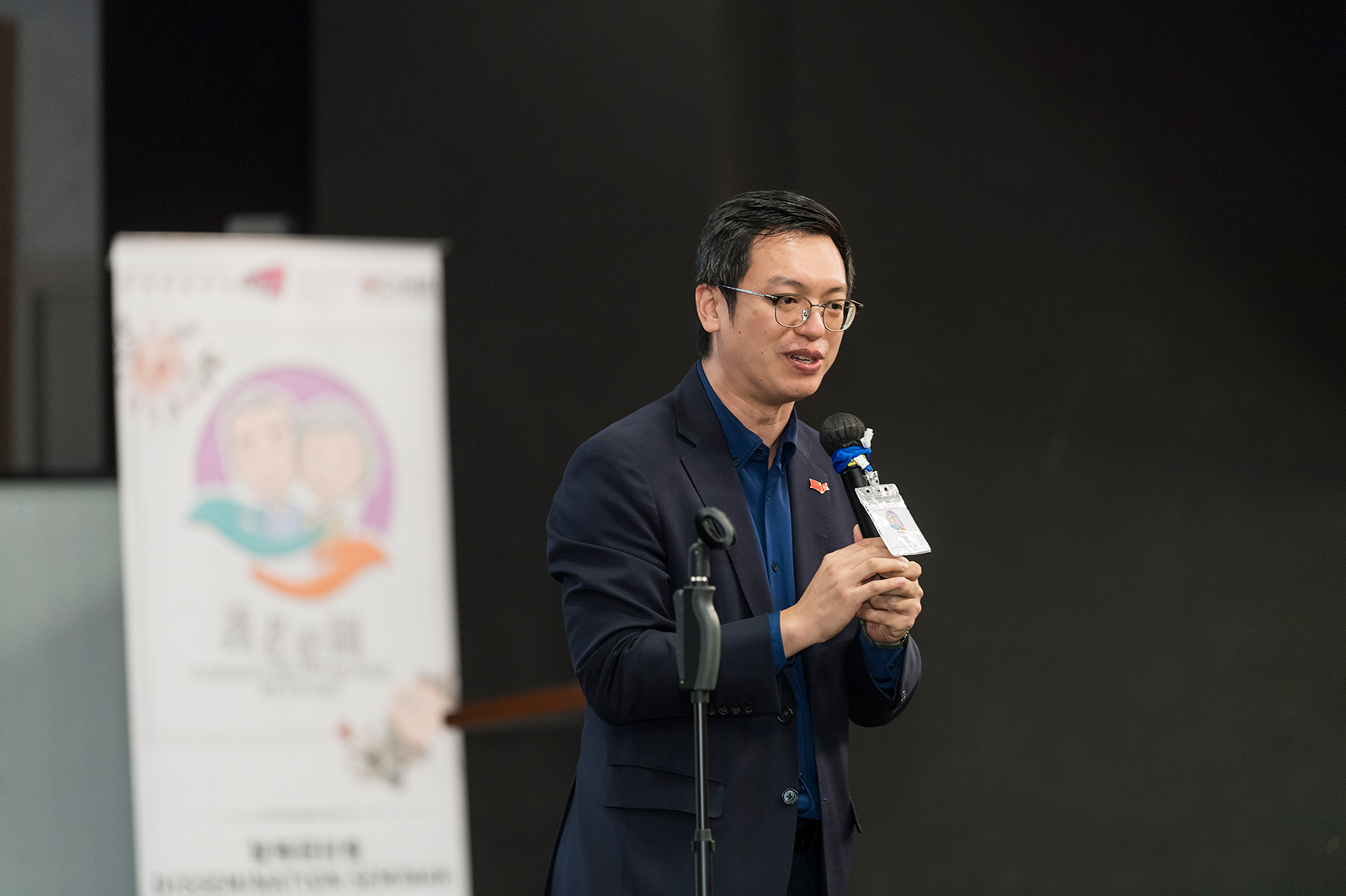
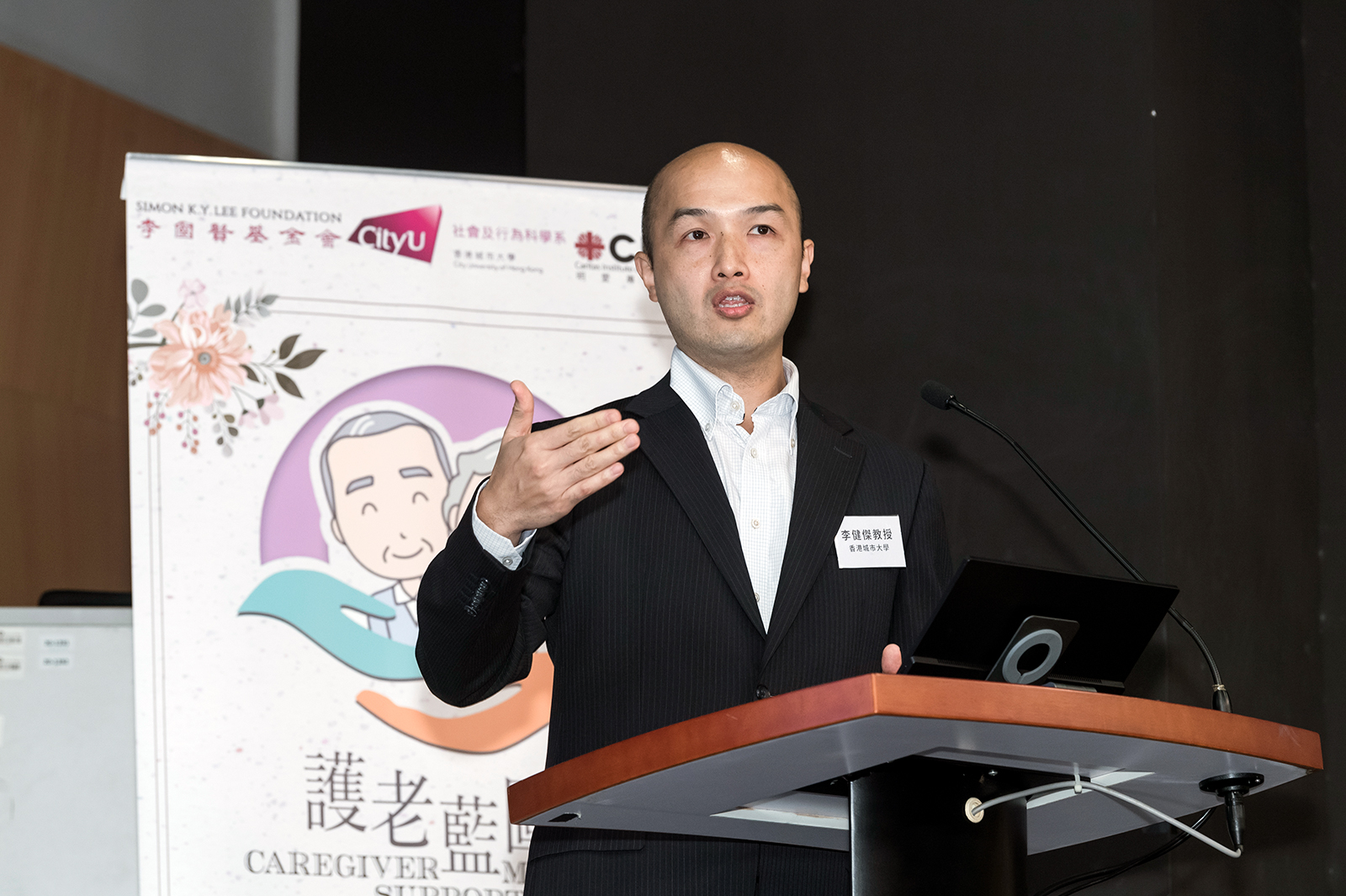
The research team partnered with the Foundation to develop and launch the Caregiver Support Project in 2019 and collaborated with five social welfare organisations: Baptist Oi Kwan Social Service, Caritas Hong Kong, Hong Kong Christian Service, the Methodist Centre, and the Hong Kong Sheng Kung Hui Welfare Council.
The team started the CSM project in 2019. It recruited 580 caregivers to participate in a six-month randomised controlled trial study from January 2022 to March 2023. It developed the Caregiver Needs Assessment (CNA) tool, which allows social workers to identify “five major needs” – physiological needs, psychological needs, social support needs, role conflict needs, and care recipient’s needs – as well as “seven major resources” for caregivers: family support, self-efficacy, healthy lifestyle, responsibility and commitment as a caregiver, community resources, spirituality, and closeness with care recipient. This helps caregivers understand their situation more easily, and social workers can conduct further analysis based on their scores. The experimental group had greater improvements in caregivers’ needs, resources and life prospects, etc. than did the control group.
In addition, from August 2020 to May 2021, during the pandemic, the team assisted caregivers of older adults who were not computer-savvy to use tablet computers to participate in the PPE online. The team helped them understand themselves better, affirm themselves more, and helped them tackle the challenges they encountered on their caregiving journey, while encouraging them to become peers with other novice caregivers.
To benefit more caregivers and enable a broader range of social workers to adopt and implement these validated intervention models and professional approaches to support family caregivers of frail older adults, Caregiver Support Project 2.0 commenced in June 2023 and is expected to be completed in the third quarter of 2025.





